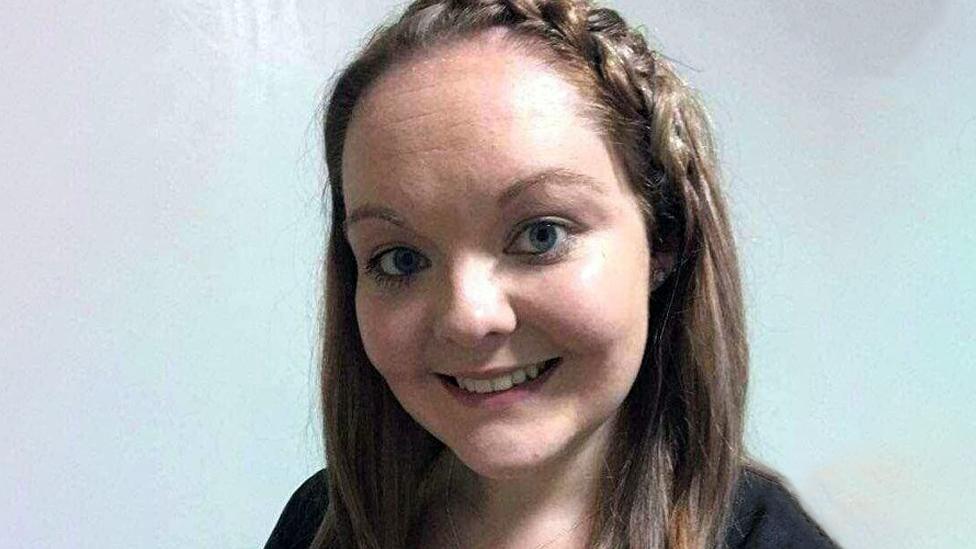Claire Inglis: Concern raised months before bailed man murdered mum
- Published
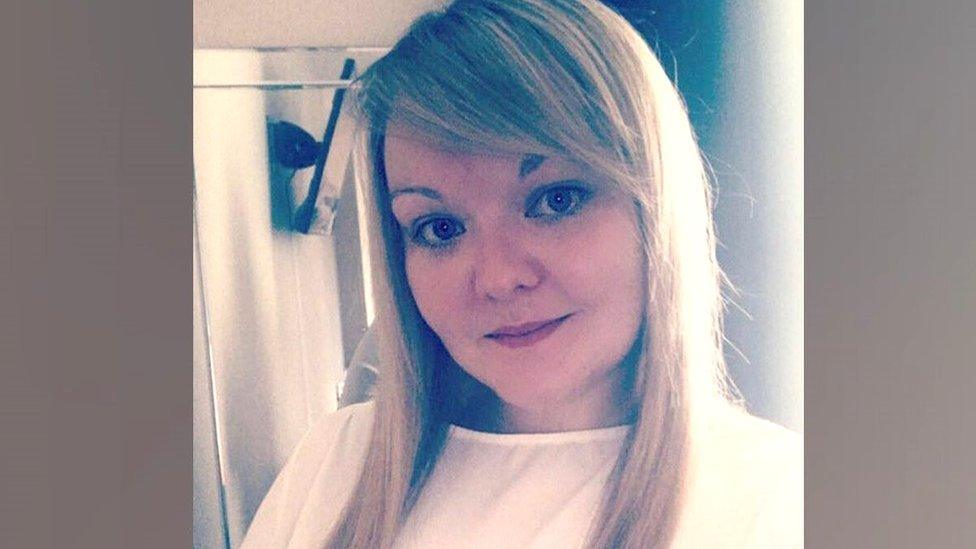
Claire Inglis suffered 76 injuries in the fatal attack
Social services raised concerns about a violent offender weeks before he was deemed fit for bail and went on to murder his girlfriend.
Christopher McGowan tortured Claire Inglis before killing her at her flat in Stirling on 28 November 2021.
Documents seen by the BBC show the case was flagged to social workers in September and they tried to visit the property three days before the killing.
The council said reports on McGowan were not requested by the courts.
On 28 November, McGowan beat and strangled Claire before burning her with a lighter and pushing a wet wipe down her throat. She had a total of 76 injuries.
They had been together for eight weeks.
McGowan was sentenced to a minimum of 23 years for the murder, which was described as being "beyond sadistic" by the judge.
Claire's relationship with McGowan was flagged to Stirling Council's child services in September 2021 - two months before he murdered her.
The same records show McGowan had been asked to leave the home of another family on the advice of social work, and there were concerns about him living with Claire who had a young child.
But the case was closed because McGowan had been remanded in jail until 23 November.
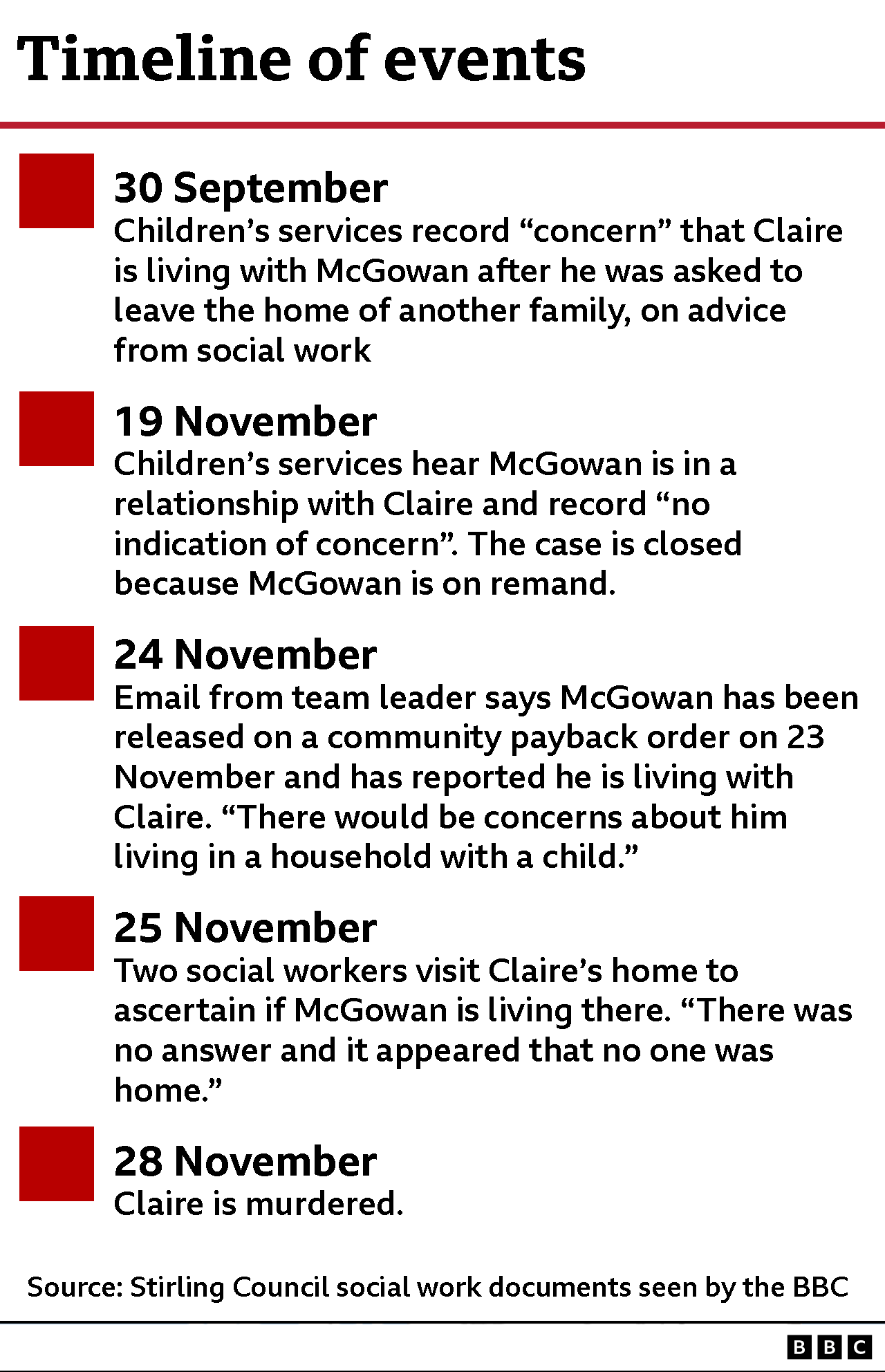
When he was released, a justice social worker - whose job is to supervise offenders in the community - told Stirling Council that McGowan was now on bail and confirmed he was living with Claire.
Their email states "there would be concerns about him living in a household with a child".
On 25 November social workers tried to visit McGowan at Claire's flat - but there was no answer and no one appeared to be home.
The murder happened three days later.
Stirling Council said courts did not request any reports to assess whether bail was suitable during a court appearance after 30 September.
Lack of communication 'disturbing'
McGowan had 39 previous convictions, mostly for breaches of the peace and breaches of bail, as well as three convictions for assault.
One of the breaches of the peace involved a former partner in 2014.
In the months before he murdered Claire, he had been granted bail five times and was ordered to her flat.
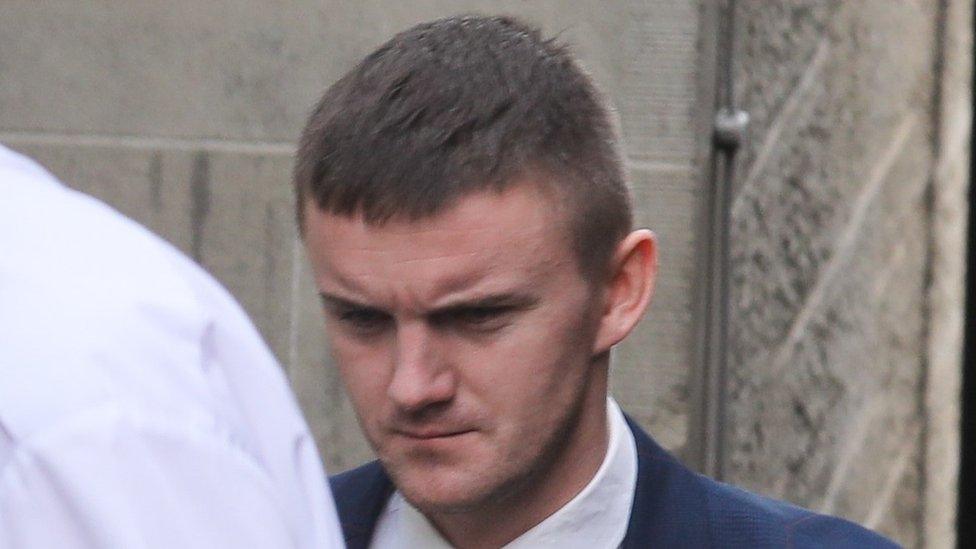
Christopher McGowan was found guilty of murder following a trial at the High Court in Stirling
Scotland's top prosecutor, the lord advocate, and top judge, the lord president, both wrote to the first minister about Claire's case, setting out how decisions were made about McGowan's bail.
They said that due process was followed.
But Claire's parents, Fiona and Ian Inglis, believe he should never been allowed to live with her or their grandson and have been campaigning for answers.
They are asking why the information that social services deemed McGowan to be a risk was not shared with the courts.
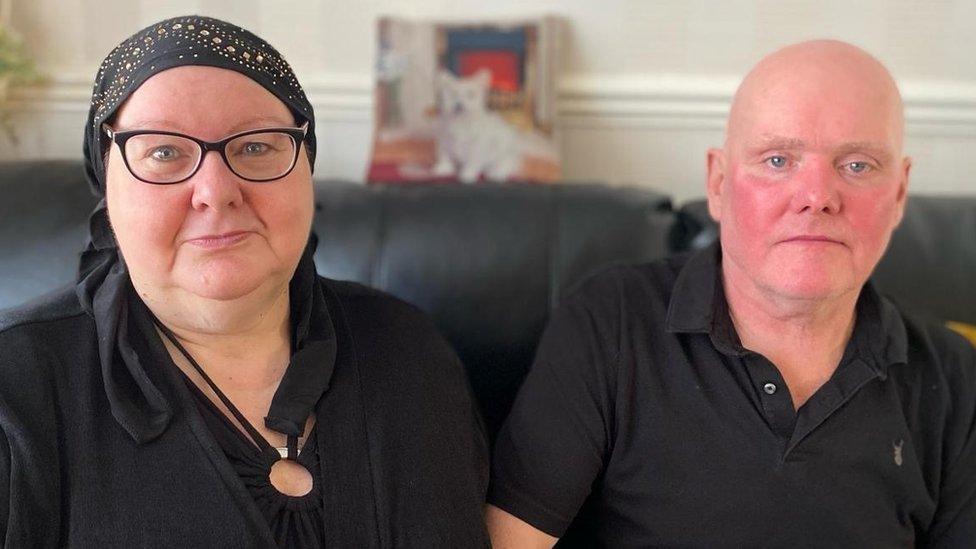
Claire's parents Fiona and Ian Inglis have been searching for answers over why McGowan was living with Claire
Ian told the BBC: "He was known as a danger to a child, all of his convictions at the time. They say no lessons have to be learned on the same piece of paper, but everybody looking at that piece of paper can see there's failings right there.
"If due process was followed then it needs to be changed. There should be a review of all the services involved, and nobody is interested."
Marsha Scott chief executive of Scottish Women's Aid told the BBC that a lack of communication between public service systems had been a criticism for decades.
She said: "The really telling and shocking conclusion is the system, for the most part, operated according to its own rules.
"What disturbs me is that there doesn't seem to be any accountability for the fact that whether due process was followed, nobody is taking responsibility for the fact that a woman was murdered in a system that had information about how dangerous this man was.
"If you read any of the reviews of child deaths they'll all say this could have been avoided if different elements of our system had communicated with each other."
Legal tests
Conservative MSP Russell Findlay told the BBC that no family should have to go through what the Inglis family had to find answers.
He said: "The social work were aware of him and were concerned about him.
"All of these questions could be answered, fairly painlessly and quickly if only someone in government gives a green light to an inquiry."
A Stirling Council spokesperson said decisions on whether to grant bail ahead of trial or sentencing were for the courts to make "based on the facts and circumstances of the case before them".
They added: "Our thoughts remain with Claire Inglis' family following this tragedy."
The Scottish judiciary is responsible for bail decisions. It is supported by the Judicial Office for Scotland.
The Judicial Office for Scotland said: "In considering whether or not to grant bail to an accused person in a particular case, the sheriff must apply the correct legal tests set by parliament, taking into account any relevant previous convictions and what is put to the court by both the Crown and by the defence.
"Each case depends on the unique facts and circumstances prevailing at the time and the decision can, of course, be appealed by the Crown or the defence."

Watch now on BBC iPlayer: Killed by my boyfriend - The story of Claire Inglis, who was murdered by Christopher McGowan while he was out on bail

Related topics
- Published25 October 2023
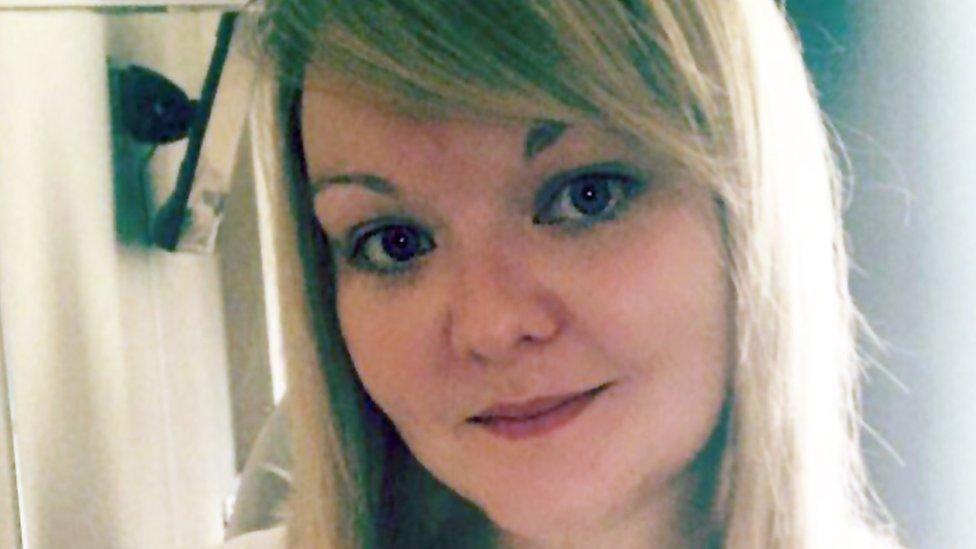
- Published25 October 2023
